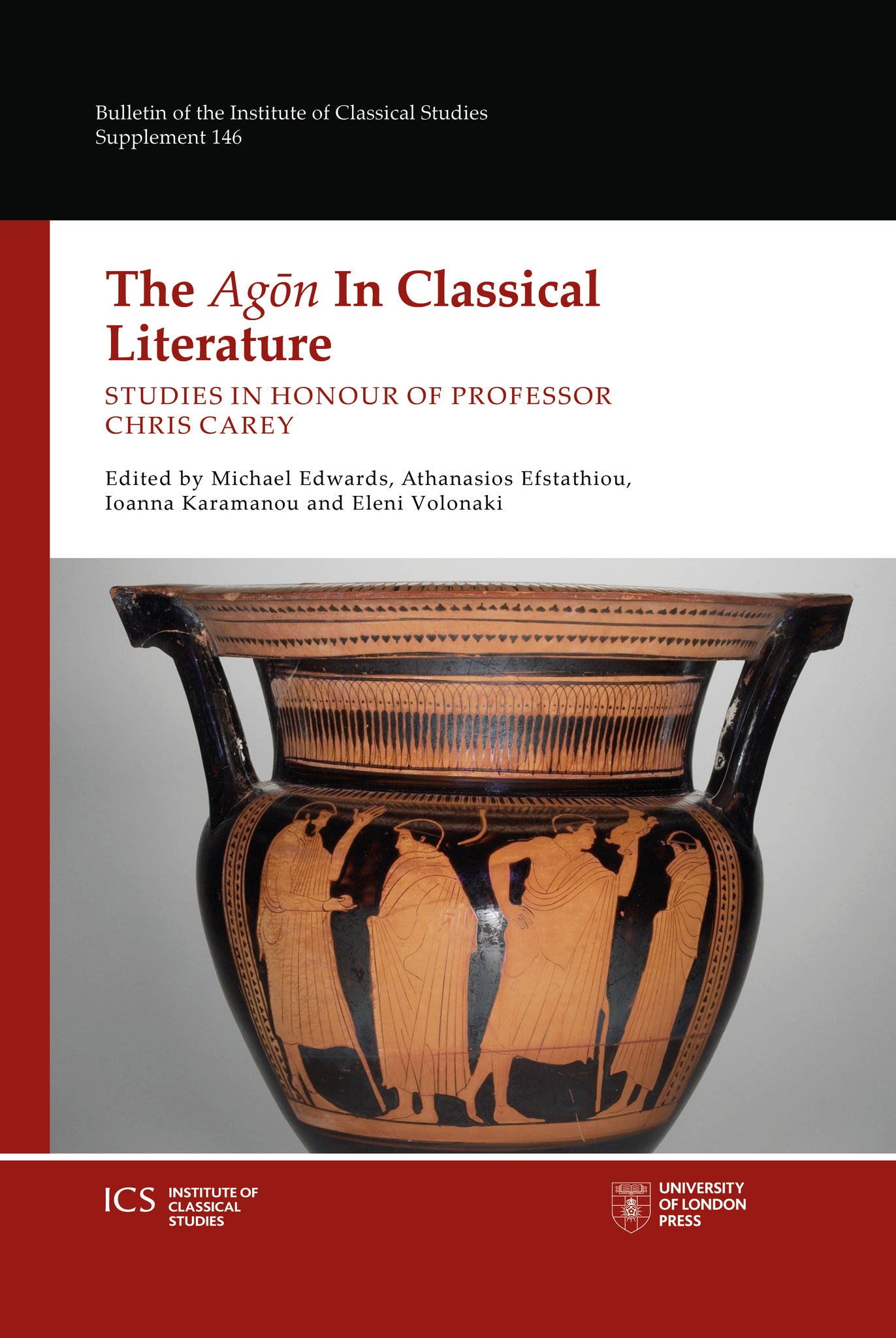We're sorry. An error has occurred
Please cancel or retry.
The Agōn in Classical Literature

Some error occured while loading the Quick View. Please close the Quick View and try reloading the page.
Couldn't load pickup availability
- Format:
-
07 June 2022

The multifaceted agōn – a ‘contest of words’ – is a force formulating classical literary tradition. This book reflects on facets of the agōn and its representations in classical literature across a variety of genres and ideological contexts, from Homer to lyric poetry, drama, law, rhetoric and historiography, and the pivotal role of competition in ancient Greek thought. It sketches out key lines of inquiry pertaining to the study of the agōn as a literary, structural and dialectic form, as a means of authority and power, and as a competitive element in poetic diction and performance. Stimulating fresh discussions under a broad spectrum of theoretical and methodological approaches, this collection of essays explores the wide range of agonal dynamics, and their generic and cultural value.

LITERARY CRITICISM / Ancient & Classical, Ancient, classical and medieval texts, LITERARY COLLECTIONS / Ancient & Classical, HISTORY / Ancient / Greece, LANGUAGE STUDY / Ancient Languages, Ancient Greek and Roman literature

PrefaceAthanasios Efstathiou
IntroductionIoanna Karamanou: The agōn in its literary and ideological contexts
I. The agonistic poetics of epos and early lyric, and their Hellenistic reception
Agonistic epic interactions: the appalling punishment of Odysseus’ servants in Odyssey 22
Ioannis Lambrou:
The agōn as literary motif in representations of the lyric poets
Theodora A. Hadjimichael
The poets’ voice against slander: Pindar (Pythian 2.53-6, 72-88), Callimachus’ Apollo Lyc(e)ius and other poetic ‘animals’
Flora P. Manakidou
The golden age and traces of iambic mockery in bucolic agōnAna Petkovic
II. Debates on stage
Agōn at play: rhetorical debate in Greek tragedy
Akrivi Taousiani
The dynamics of agōn in Sophocles’ ElectraStyliani Papastamati
Euripides’ agonistic rhetoric: the formal debates in the AlexandrosIoanna Karamanou
A later treatment of the agōn-scene in Euripides’ PhoenissaeGeorgia Xanthaki-Karamanou
The agōn in a modern Greek production of Aristophanes’ LysistrataStavroula Kiritsi
The agōn in middle comedy
Athina Papachrysostomou
III. The notion of agōn in Greek thought and philosophical discourse
Agön of excellence in ancient Greek thought and literature
Ioannis N. Perysinakis
Anger in Socrates’ philosophy
Manuela Irarrazabal
Socrates’ combat against Proteus in Plato’s dialogues
Liana Lomiento
Agōn: an Aristotelian way of life
Maria Liatsi
IV: Agonistic Rhetoric
We are the champions: the role of agonistic metaphors in the political discourse of classical Greece
Jakub Filonik
Irony as a rhetorical tactic in Lysias’ dicastic agōnesEleni Volonaki
Brenda Griffith-Williams, ὁ γὰρ ἀγὼν οὐ μικρὸς αὐτοῖς, ἀλλὰ περὶ τῶν μεγίστων: competition for inheritance in ancient Greece
Iphigeneia Giannadaki, Mēden aprobouleuton? Dem. 22 and the management of the ekklēsia’s business
The agōn in Isaeus. A laudatio for Chris Carey
Mike Edwards
Christopher Carey – curriculum vitae
General Index



